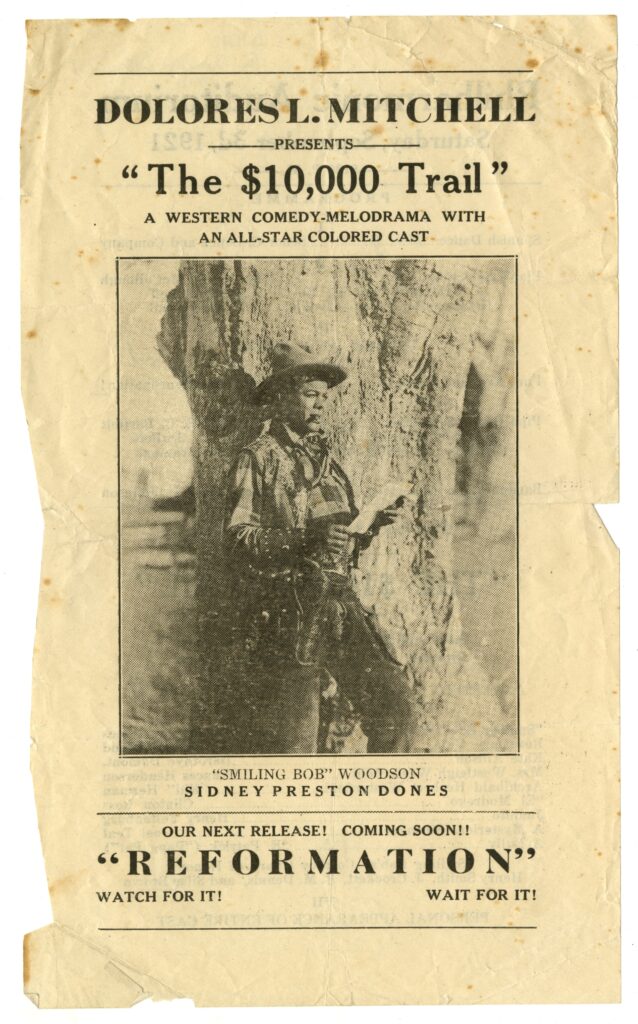Jennifer Tuttle has published an article-length analytical profile, “Dora Mitchell/Dolores Michel (1891–1970),” introducing an author who is almost entirely unknown but whose life story and diverse creative output shed substantial light on Black women’s writing in early twentieth-century Los Angeles. The profile is accompanied by a reprint, edited by Tuttle, of Mitchell’s courtroom murder mystery “The Shadowed Witness,” which appeared serially in LA’s premiere Black newspaper, the California Eagle, in the summer of 1923; this month’s re-publication thus celebrates the story’s centenary. This work appears in Legacy: A Journal of American Women Writers, but both the profile and the reprint are being offered free without a subscription by the University of Nebraska Press at the above links.
Dora Mitchell and her ancestors are nearly invisible in the historical record, and most traces of her life, along with a portion of her work, have crumbled into dust. Yet Tuttle argues that their lives mattered: the experiences of Mitchell and her family are an important part of American history, Black history, women’s history, and the history of the US West. Moreover, recovering Mitchell’s creative work (which appeared in silent “race films,” newspaper inserts, Black newspapers, pulp magazines, and local theater–all ephemeral venues) helps substantially to expand researchers’ expectations about what constitutes Black women writers’ historical archive. That is it prods us to rethink where to look, and what to look for, when seeking out Black women’s lives and work in the West before 1930.
Tuttle spoke at length about the research process for this project in her Ludcke Lecture earlier this year. Her research on Dora Mitchell was supported by her recent sabbatical leave, her Ludcke research funding, and an academic research grant from Sisters in Crime.

